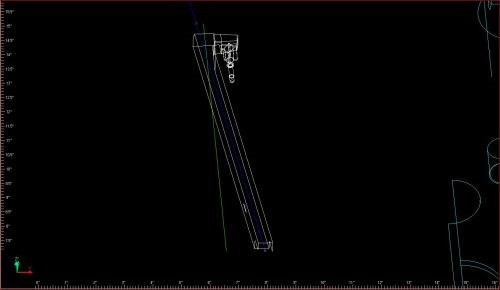Angling for Efficiency with EDM Drilling
This wire EDM shop often drills angled start holes regardless of whether a job requires it.

The EDM drill shown above, a Belmont BT155 from Belmont Equipment & Technologies, has proven critical to attracting new business at Extreme Wire EDM. So says Brian Bernt, co-owner, who explains that the drill’s size and tilting head are both in high demand among the mold shops that constitute nearly 90 percent of the wire-cutting specialist’s business. The latter feature is particularly important for drilling start holes for EDM wire at an angle to avoid cooling channels and other internal mold block features.
However, the shop often performs angled drilling even when parts don’t require it. As an example, Bernt cites a commonly requested operation: creating angled channels to accommodate vertical lifters. Many applications would permit threading through a vertical hole, then using the bottom wire guide to slowly slant the wire to the proper cutting angle as it burns its way to a starting point along the side of the channel. However, this approach takes a lot more time—and consumes a lot more wire—than starting with an angled hole at the outset, Bernt says.
It can also create additional work. That’s because the bottom of the wire leaves a narrow slot in the side of the channel where it broke through the broader workpiece stock—that is, the point where it could stop moving into position and start cutting the channel’s profile. On subsequent passes, the wire encounters less resistance at this point and speeds up, thereby removing less of the still-intact stock directly above this slot. The result is a difficult-to-remove, vertical line of slightly protruding material on the upper portion of one side of the channel. The CAD drawing below helps illustrate this concept.
Meanwhile, that’s far from the only EDM drilling strategy that the shop employs to make downstream wire cutting both faster and more efficient. Click here to learn more.

Starting with a straight start hole (green line) would be more time-consuming than drilling an angled start hole at the outset.












.jpg;maxWidth=300;quality=90)
